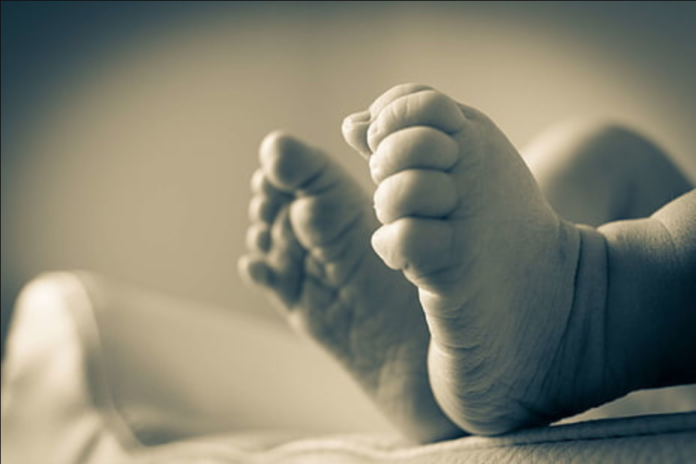
Parents of a record-breaking nine babies are said to be ‘absolutely delighted’ to finally return home after 19 months spent living around an intensive care clinic.
Mother Halima Cissé, 27, and her husband Abdelkader Arby, 36, from Mali were on Tuesday preparing to meet family and friends in the country’s capital Bamako, and they will then head on to Timbuktu.
It follows almost two years at the specialist Ain Borja clinic in Casablanca, Morocco, following the birth of their nonuplets in May 2021.
‘It’s been a long wait, with plenty of tears, but the babies are now all fighting fit, and everybody is delighted to be coming home,’ a close family friend in Mali told Mail Online.
‘They are getting lots of support from the Malian government and – God Willing – are now going to enjoy a lovely new home in Timbuktu.
‘It has been specially designed for a very big family and is equipped with everything they need.
‘The kids have been getting stronger every day, and really get on well with each other – they are very cute indeed.
‘There was lots of emotion when they left the clinic in Casablanca – they viewed the staff there as family – but going home as soon as possible was always the plan.’
The five girls and four boys now have the Guinness World Record for the most children to survive a single delivery, and will be joining their older sister, Soda, four – making 10 kids in all.

The nonuplets were delivered prematurely by Caesarean-Section surgery and beat a previous record set by American ‘Octomum’ Nadya Suleman, who had eight babies in 2009.
Kadidia, Oumou, Adama, Fatouma, and Hawa are the girls, while the boys are Mohammed VI, Bah, Elhadji and Oumar.
Mohammed is named after the King of Morocco, as a tribute to the North African kingdom where they were delivered so successfully.
The children weighed between just 500g and 1kg at birth, said Professor Youssef Alaoui, director of the Ain Borja clinic.
The family originally moved to an apartment nearby, so that staff could offer them around-the-clock care.
Speaking earlier this year, dad Abdelkader, a Malian Army officer, said: ‘They all have very different characters.
‘Some are quiet, while others make more noise and cry a lot. Some want to be picked up all the time. They are all very different, which is entirely normal.
‘They’re all crawling now. Some are sitting up and can even walk if they hold on to something.’
Abdelkader said the children were already ‘hugely popular’ in Mali, and Malians were ‘very keen to see the babies with their own eyes’.
Mother Halima almost died of blood loss during the C-surgery but is now recovered fully, and getting through around 100 nappies a day.
She told the MailOnline: ‘As the babies were coming out, there were so many questions going through my mind.
‘I was very aware of what was going on and it seemed as if there was an endless stream of babies coming out of me.’
Halima was initially too exhausted to look after the kids, and ran out of breast milk, instead visiting them once a day for 30 minutes so as to forge a bond with the tots.
Abdelkader added: ‘The Malian state has put everything in place for the care and treatment of the nine babies and their mother. It’s not at all easy, but it’s beautiful and something that is comforting.
‘ I hope God blesses everyone who doesn’t yet have children – that they can have what we, the parents of nonuplets currently have. It’s beautiful, a real treasure.’
